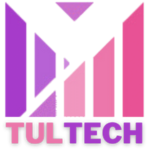Assessing Strategic Agricultural Policies for Sustainable Development in Iran: A Retrospective and Delphi-Based Evaluation on Progress in Economic, Social, and Environmental Dimensions
DOI:
https://doi.org/10.15157/QR.2024.2.1.14-43Keywords:
Policymaking, Sustainability, Agriculture, Foresight study, Retrospective conceptAbstract
Sustainable development in agriculture requires strategies that align with economic, social, and political priorities while also adhering to global standards such as the Sustainable Development Goals (SDGs). This study employs a retrospective approach and the Delphi method to assess strategic agricultural policies in Iran as a developing country, evaluating past policy effectiveness and proposing future directions. A combination of library surveys and expert opinions reveals that, in the short term, prioritizing cultural programs for food security and comprehensive free-market agriculture hold the highest significance. In the mid-term, initiatives such as knowledge-based agriculture (political), village-based entrepreneurial efforts, and industrial agricultural research (economic) emerge as critical areas of focus. Long-term strategies emphasize justice-oriented progress, effective water resource management, and transformational industries. The study's findings contribute to developing standards and metrics by which agricultural policies can be assessed for sustainable efficiency, performance, and progress.
Downloads
Published
How to Cite
Issue
Section
License
Copyright (c) 2024 Authors

This work is licensed under a Creative Commons Attribution 4.0 International License.






